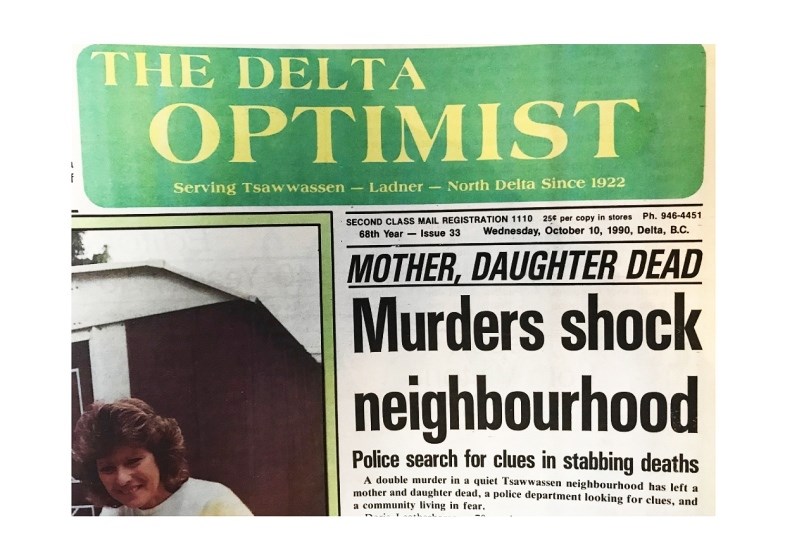Derik Lord has been granted a six-month extension to his day parole almost 30 years after a grisly double murder in Tsawwassen.
Following a review by the Parole Board of Canada in March, Lord was granted day parole for a four-month period. Another review was conducted by the Parole Board in early July with a decision released to the Optimist Tuesday afternoon.
After 27 years behind bars, Lord, one of three teenagers convicted in a 1990 double murder, was denied day parole following a hearing last September, but in January a review of that decision was initiated. That review concluded Lord would not present an undue risk to society if released on day parole.
In the July review report, the Board said that it was satisfied that Lord has negotiated a successful initial transition to the community.
“You are engaged to the greatest extent possible, given pandemic restrictions, in targeted Indigenous-based programming to address trauma and recovery, as well as maintenance programming,” wrote the Board. “There is no evidence that you have been less than forthcoming and appropriate in your everyday dealings with staff and other offenders, and the Board assesses your overall performance since arriving in the community as reflective of an appropriate commitment and focus on future change.”
The Board said that they view Lord’s plan for a continuation of day parole favourably.
“You will continue to reside at the Indigenous CRF where staff are familiar with you and work closely with staff and Elders to walk your recovery healing plan while acquiring enhanced self-management skills that can be tested in a controlled community setting,” added the Board. “With the imposition of targeted special conditions, the Board is satisfied that your release plan is sufficiently structured and robust that it mitigates your risk to re-offend.”
The Parole Board previously imposed a number of conditions that Lord must still abide by, including:
* No direct or indirect contact with the deceased victims’ families, including extended family members and Crown witnesses
* Not to travel to Vancouver Island or the Lower Mainland
* Not to associate with any person you know or have reason to believe is involved in criminal activity and/or substance abuse
* Follow treatment plan/program to be arranged by parole supervisor in the areas of personal emotional orientation, violence and issues related to reintegration.
Lord and David Muir were hired by Darren Huenemann to kill his mother, Sharon Huenemann, and grandmother, Doris Leatherbarrow, in a murder-for-hire plot for an inheritance.
All three were convicted in 1992.
The three teens lived in Saanich at the time of the murders and at trial the prosecution argued that on Oct. 5, 1990, Huenemann and his girlfriend dropped Lord and Muir off at the ferry terminal.
The pair then went to Leatherbarrow's Tsawwassen home and, after being invited in for dinner by the two women, bludgeoned and stabbed them to death. The two teens then took the ferry home and were picked up by Huenemann and his girlfriend.
Lord, now 46, and Muir were both sentenced to life in prison with no chance of parole for 10 years. Huenemann received a life sentence with no chance of parole for 25 years.
After his conviction, Muir, who pleaded not guilty at trial, admitted his role in the murders and has been out on parole for almost two decades. He was granted day parole in April 2002 and full parole a year later.
Huenemann appeared before the parole board at his Quebec prison for the first time two years ago at which time his parole request was denied.
Lord continues to insist he is innocent.



